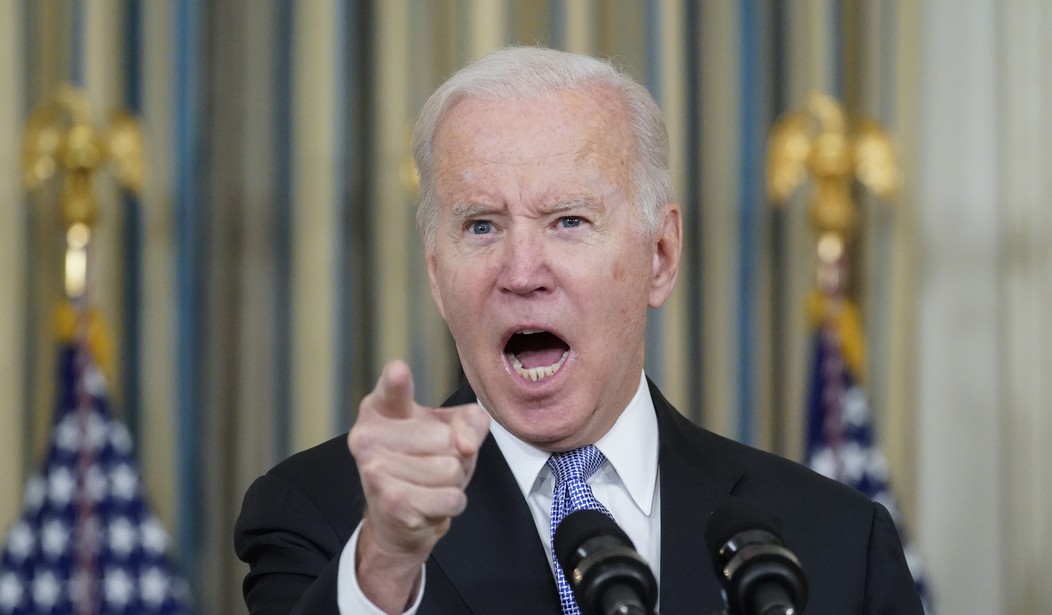As in the 1880s, we live in an era of polarized partisan parity, in which changes of opinion among independent voters can sweep election results. One year ago, Joe Biden was elected president with 51% of the popular vote. Now, with his job approval down to 42%, his party is in trouble.
That's obvious from Republican Glenn Youngkin's 51-49 victory for governor in Virginia, which Biden won by 10% in 2020, and Democrat Gov. Phil Murphy's reelection by only 51-49 in New Jersey, which had been +16% for Biden. It's obvious also that, barring an upward shift in public opinion, Democrats will surely lose their narrow House majority in the House and likely lose their current 50-50 parity in the Senate.
Historic precedents abound. Presidents' parties almost always lose House seats in midterm elections for structural reasons. Presidents' parties have gained House seats only three times in the past century (1934, 1998, 2002), all when incumbent presidents had unusually high job approval.
There are structural reasons for this. In an always diverse nation, presidents are only elected by amassing large coalitions with divergent views. Once in office, their actions and goals inevitably displease some previous supporters.
During midterms, members of the president's party are stuck with the president's record. That can hurt, even in governor's races in times of strong partisan polarization. The opposition party, in contrast, has choice of terrain.
One example is the Biden Democrats' proposal to increase the deductibility of state and local taxes. This is wildly popular -- politically essential, actually -- for some putatively moderate Democrats in high-tax, high-income places such as New York, New Jersey, Connecticut and California.
Recommended
But the issue can work for Republicans elsewhere because the lion's share of dollar savings goes to taxpayers earning $500,000 or more. That's a hard sell in places where almost nobody earns that much.
Another historic perspective: Three decades ago, Americans emerged from a long era (1952-92) in which they mostly elected Republican presidents and Democratic Congresses. That often resulted in widely accepted bipartisan legislation since neither party's politicians expected to have total control any time soon.
Since 1994, voters have become both increasingly partisan and more closely divided. So both parties' politicians have reason to shun bipartisan compromise and wait to win a trifecta: the White House and both houses of Congress. When they get one, they push for, and sometimes pass, sweeping legislation, then promptly lose their majorities.
This happened in 1994 after Democrats failed to pass Hillarycare and in 2010 after they passed Obamacare. It happened in 1966 after passage of Lyndon Johnson's Great Society, when Republicans won the House popular vote outside the then-heavily Democratic South. If Biden's approval remains low, it will probably happen again in 2022.
It happened to Republicans in 2018 after passage of the Trump tax package, and it might well have happened in 2002 if George W. Bush's job approval hadn't been so high after 9/11. In any case, Republicans were swept out of control in 2006.
Why have trifectas been repudiated? Partly for the structural reasons already mentioned. And partly because most voters apparently don't want the significant economic and entitlement policies pushed by politicians and policy wonks of both parties.
That's the conclusion one gets from maverick analyst Michael Lind's two articles recommending how each party can win a lasting majority. His advice to both sides is essentially the same: Embrace popular programs such as Social Security and Medicare; reject left or right think tank solutions; avoid avoidable wars.
In other words, voters may be full of complaints and may respond favorably to what I call wouldn't-it-be-great-if-we-had (free child care, free college, zero taxes) poll questions. But most actually don't want severe disruption in a country where most people live in more security and affluence than ever heard of in human history.
Throw in some more issues. Voters don't like rising crime rates. They don't like surges of illegal immigration. History shows they really don't like inflation. They overwhelmingly rejected Democrats amid postwar inflations in 1920 and 1946, and they rejected three consecutive presidents (Richard Nixon, Gerald Ford, Jimmy Carter) in the inflationary 1970s.
Further back in history, they resoundingly rejected the inflationary "free silver" of William Jennings Bryan in 1896. Sympathetic historians note that Bryan swept the then-lightly populated West but lost the previously marginal East and Great Lakes states, with 57% of the nation's voters, to William McKinley by a solid 58% to 40%. All their 216 electoral votes, split between the parties in the five previous elections, went Republican.
Will surges in violent crime, illegal immigration and inflation continue in 2022? If so, that's not good news for the Biden Democrats.
























Join the conversation as a VIP Member